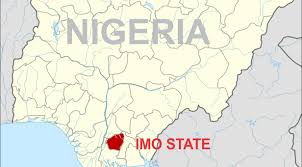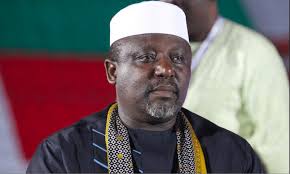BY PROF PROTUS NATHAN UZOMA
Nigeria, according to the great Igbo patriarch, General Odimegwu
Chukwuemeka Ojukwu (Because I am Involved), is a multi-national State,
and the Igbos are one within this family of nations. The Igbo-nation
for Prof Chinedu Ositadinma Nebo (2010 Ahiajoku Lectures), is
doubtless the most visible, most significant and most ardent believer
in the concept of a united Nigeria among the federating units. No
other ethnic nationality is so massively dispersed within the
geographical confines of the Federal Republic of Nigeria as the Igbos.
The Igbos have been the most enterprising ethnic nation in Nigeria
before the 1966 coups and the subsequent reprisals, pogroms and
suppressing antics that followed suit. From thence Igbos were
marginalised, and lacking in any appreciable influence within the
power structure in Nigeria. This marginalisation in obvious in all
nooks and crannies of the nation’s social existence, especially during
the coups of Yakubu Gowon and Muritala Mohammad, marginalisation in
states-creations, federal offices (especially in the Nigerian
presidential seat, Attorney General, Federal House of Assembly,
military Chiefs of Staff, Inspectors General of Police, NYSC Directors
General, national census figures, NNPC Managing Directors), etc.
The above inequalities in participation in national leadership have
compelled series of contemporary thoughts and social dispositions in
modern day Igbos, and these in ripple effects, have compounded rolls
of problems for the survival of the contemporary Igbos. The
contemporary Igbos have fallen into gross individualism, which
conversely results in: Death of Igbo socio-cultural institutions and
cultural heritages, (which amongst other reasons are responsible for
the irrational multiplication of autonomous communities and Kingdoms,
by the State Governors in Igboland) and the consequent saying that
‘Igbo e nwe Eze.’
Given the above realities that the present Igbos face in Nigeria, (as
well as the complicated socio-political structure that Igbos
distinguished themselves with, which scholars qualify today as
‘republicanism,’) to have a unified opinion and target has been a
recurrent difficulty. And having sensed this, the grand masters of
Nigerian politics have always relied on the features and implications
of such disposition to initiate, sustain and perpetuate structural
marginalisation of the Igbos.
With the above life-situation, what Igbos need is not
relevance-assertion, as their ubiquitous substantial visibility in all
parts of the Federation makes them more federal than any other ethnic
group in the country. What the contemporary Igbos need if we still
believe in one Nigeria, is restructuring the ingrained structural
marginalisation that has existed for half a century now, without even
mere inkling for change.
It is on this platform that Dr Orji Uzor Kalu stands perpendicular
behind the contemporary Igbos. He is one of the substantial, tested
and trusted Igbos that have strong enthusiasm in the affairs of the
Igbo nation. He believes that Igbos must participate in active
national politics if their dream of Igbo presidency must be achieved.
This caused his involvement in the Njiko Igbo Movement, which aimed at
ensuring the presidential seat for a Nigerian citizen of Igbo
extraction. As it is a national fact that an Igbo has only held the
Nigerian presidency for only six months since Nigeria’s independence
(that is, from January 15, 1966 to July 29, 1966), and after then no
more.
Yet this quest for Igbo presidency if achieved is no restitution for
the gross marginalisation that the Igbos have been subjected to for
five decades since after the Nigeria-Biafra civil war. It is this very
reason that marks the difference between OUK and other
nationalist-minded Igbos that believe in one-Nigeria, as well as
between OUK and the leaders of several movements on self-
determination and groups agitating for the secession of the Sovereign
State of Biafra.
As Ikwan Oleka rightly noted, Orji Uzor Kalu and Nnamdi Kalu are only
two Igbos that have guts to say things the way they are. The only
difference between them is their opinion. While OUK believes that
Igbos will be better in a united Nigeria, Nnamdi Kanu believes that
Igbos will be better of as an independent country called Biafra. It is
on this note that he opines that the agitation for Biafra cannot be
made possible now (but never ever), as there are pending procedures
that have not been taken to that effect, and instead urged Igbos to
channel their energy for an Igbo to become the President of Nigeria.
Thus, rather than spending energy on secession, Igbos in his view
should gather up their political ante and play politics of inclusion,
which can earn the ethnic group the nation’s President sooner, and
thus end the jinx.
For Dr Orji Uzor Kalu, we the Igbos must fix Nigeria to work for all
inclusive; for the aspiration of all. Certainly, Igbos have made
progress but it is not yet Uhuru. This is not the time to pop
champagne but a time for conscious reflection on the road we have
passed, where we are and where we intend to be in the years ahead. As
a diplomat, grand politician and Nigerian elder statesman, OUK
resonates on the possibilities of a lasting, one united Nigeria and
their procedural attainments. It is for this reason he stated that if
we want Biafra we must first ensure that referendum is included in the
constitutional review.
He strongly believes in one united Nigeria, and thus emphasises that
Nigeria should be thinking of annexing other Africa countries rather
than dividing itself. The unity of Nigeria from this purview is
unnegotiable. China for instance, is 2 billion and not talking about
secession. But Nigeria with less than 200 million people, is talking
of secession. Consequently, Nigeria will experience quicker progress
towards the fulfilment of its great potentials as a nation if its
citizens foster peace, security and stability, (which are essential
for development) by abiding by the rule of law and embracing its
diverse cultural values.
Similarly, he opines that Igbos are in a better position to understand
that politics, like they say, is local. This therefore suggests that
the Igbos must see the need to align properly and seek strategic
partnership of other interest groups and political blocs in order to
achieve whatever developmental ideas that they have; such as the shoot
for the presidency.
As a seasoned politician, OUK expounds that in politics; you market
yourself and make yourself a strategic ally. It is when you achieve
this that you put your cards on the table. And just as he said, it is
a practical truth that if we Igbos work ourselves into very strategic
political partner, while not putting our eggs into one basket, we can
then put the cards on the table before our partners to determine what
we get from them and what they get from us. We must build necessary
networks and alliances across political divide. These are very
important so that our own stories can be told and heard too. If we
don’t build such alliances, Igbos will continue finding it difficult
to market our demands.
A thorough observation of OUK’s speeches and involvements in
one-Nigerian politics confirms his assertions that he is taking the
Igbos to the central stage of politics and decision-taking. And to
this effect, Igbos can no longer be ignored in Nigerian politics,
though it is evident that Igbos have not seen themselves so.
Nigeria is a diverse country of different ethnic groups, and no single
tribe can lay claim to the country. As such, all the ethnic groups in
the country are stakeholders in the nation and no single tribe can lay
claim to the country. As a result of the above truth, OUK asserts that
both the agitation for the Sovereign State of Biafra is a waste of
time, just as the quit notice given to Igbos by Arewa youths, is an
act of unserious northern youths, which is not the collective decision
of the north because as a well-bred Igbo who was trained in the North,
he knows when the northerners are serious and those that speak for
them.
Nigeria has come to stay as a heterogeneous nation and no amount of
hate campaign can break the country. Igbos are everywhere in the
country and anybody that touches any Igbo as a result of the quit
notice and subsequent reactions, has inaugurated war in the country
and Dr Orji Uzor Kalu vowed to led the Igbos to war if the anything
happens to Igbos because of the quit notice.
Considering the above, it is evident that OUK is strongly behind
Igbos’ future, and one of the most outstanding Igbos who is
nationally respected. This manner of man needs to be backed up if the
dream for Igbo presidency is really a contemporary pressing issue in
the life of the Igbos of today.
https://innonews.com.ng/2017/06/12/sun-newspapers-react-to-efcc-invasion/









